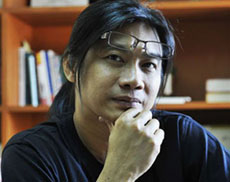More than three years have passed since Myanmar embarked on a series of reforms that many foreign observers hailed as the start of a new democratic era. For most people inside the country, however, the signs of change have been far less dramatic.
Ask the average person in Yangon or any other part of the country if their life has improved since the current quasi-civilian government came to power in 2011, and their response will likely be ambivalent at best.
Yes, they might say, there are more newspapers for sale now. But if you read them, what will you find? War still raging in the north, sectarian violence on the rise, journalists and protesters getting locked up—the same old story.
How about the economy? Doesn’t that look more promising than before?
Yes, if you were rich to begin with. But if you were poor before, you are still poor today—maybe even poorer, because even if the standard of living hasn’t risen, the cost of living certainly has.
Perhaps these are early days, and things really will pick up dramatically in the long run. But if you were to listen to many of Myanmar’s newfound foreign friends, you would think that the country has already taken great strides, and that the Golden Land gold rush can only continue apace.
For many, resource-rich Myanmar, with its vast pool of cheap labor and seemingly unlimited potential for development, is simply too good to pass up. Add to this the fact that it occupies a strategically important corner of Asia, at the crossroads of India, China and Southeast Asia, and you can soon understand why foreigners are so keen to increase their influence here.

Even when it was a pariah to much of the rest of the world, Myanmar was an attractive place for investors and governments from neighboring nations. Now, however, it’s not just a handful of countries vying for a piece of the action, but a whole world of well-wishers with dollar signs in their eyes, looking to pull Myanmar into their orbits.
It was the United States that opened the floodgates when, in November 2011, President Barack Obama sent his secretary of state, Hillary Clinton, for a historic visit that signaled the end of Myanmar’s long era of isolation from the West. But even before then, some countries—notably Norway and several European Union nations—were moving closer to engagement with a regime that many critics considered beyond redemption after decades of human rights abuses and disastrous mismanagement of the economy.
Norway always seemed an unlikely advocate for closer relations with the junta, given its history of supporting the pro-democracy movement. By bestowing the Nobel Peace Prize upon Daw Aung San Suu Kyi, the figurehead of the movement, the Norwegian Nobel Committee raised her stature to that of an international icon. And by funding and hosting the Democratic Voice of Burma, Oslo put itself firmly on the side of those seeking democratic reforms inside Myanmar.
All of this began to change in the late 2000s, when Oslo decided it was time to change its tack and begin putting more emphasis on economic engagement and stop urging Norwegian companies to refrain from trade and investment in Myanmar.
In due course, Norway’s controversial gamble on engagement paid off, both in terms of reforms (which one Norwegian diplomat haughtily informed me Oslo had “foreseen”) and in terms of lucrative contracts with Myanmar’s self-styled “reformist” government (including a license for Norwegian multinational Telenor to develop Asia’s last frontier in mobile and Internet expansion, and another for Norwegian state-owned firm Statoil to explore one of Myanmar’s most promising offshore oil and gas blocks).
Now Norway and many other countries—from Australia to the United States, and Germany to Japan—are so heavily invested in this reform success story that nobody wants to hear that it is still far from clear whether Myanmar is really moving in the right direction.
Perhaps from a distance, such doubts seem unwarranted. But until the people of Myanmar can begin to feel that they are the true beneficiaries of their country’s supposed “reforms,” foreigners who have done well off of the government’s newfound openness should probably keep their self-congratulations to themselves.
Aung Zaw is the founding editor-in- chief of The Irrawaddy. This viewpoint first appeared in the June 2014 print issue of The Irrawaddy magazine.















